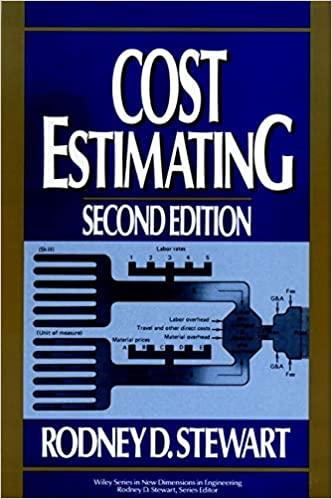Question
Atlas Steel Company produces three grades of steel: high, good, and regular grade. Each of these products (grades) has high demand in the market, and
Atlas Steel Company produces three grades of steel: high, good, and regular grade. Each of these products (grades) has high demand in the market, and Atlas is able to sell as much as it can produce of all three. The furnace operation is a bottleneck in the process and is running at 100% of capacity. Atlas wants to improve steel operation profitability. The variable conversion cost is $12 per process hour. The fixed cost is $397,000. In addition, the cost analyst was able to determine the following information about the three products:
| High Grade | Good Grade | Regular Grade | ||||
| Budgeted units produced | 4,000 | 4,000 | 4,000 | |||
| Total process hours per unit | 14 | 12 | 9 | |||
| Furnace hours per unit | 4 | 5 | 3 | |||
| Unit selling price | $316 | $257 | $242 | |||
| Direct materials cost per unit | $112 | $108 | $98 | |||
The furnace operation is part of the total process for each of these three products. Thus, for example, 4 of the 14 hours required to process High Grade steel are associated with the furnace.
1. Determine the unit contribution margin for each product.
| Contribution Margin Per Unit | |
| High Grade | $ |
| Good Grade | $ |
| Regular Grade | $ |
2. Provide an analysis to determine the relative product profitability, assuming that the furnace is a bottleneck.
| Contribution Margin Per Furnace Hour | |
| High Grade | $ |
| Good Grade | $ |
| Regular Grade | $ |
Step by Step Solution
There are 3 Steps involved in it
Step: 1

Get Instant Access to Expert-Tailored Solutions
See step-by-step solutions with expert insights and AI powered tools for academic success
Step: 2

Step: 3

Ace Your Homework with AI
Get the answers you need in no time with our AI-driven, step-by-step assistance
Get Started


